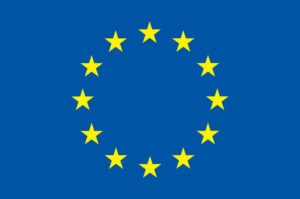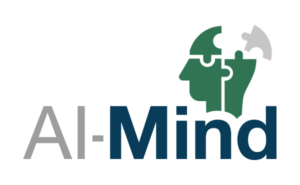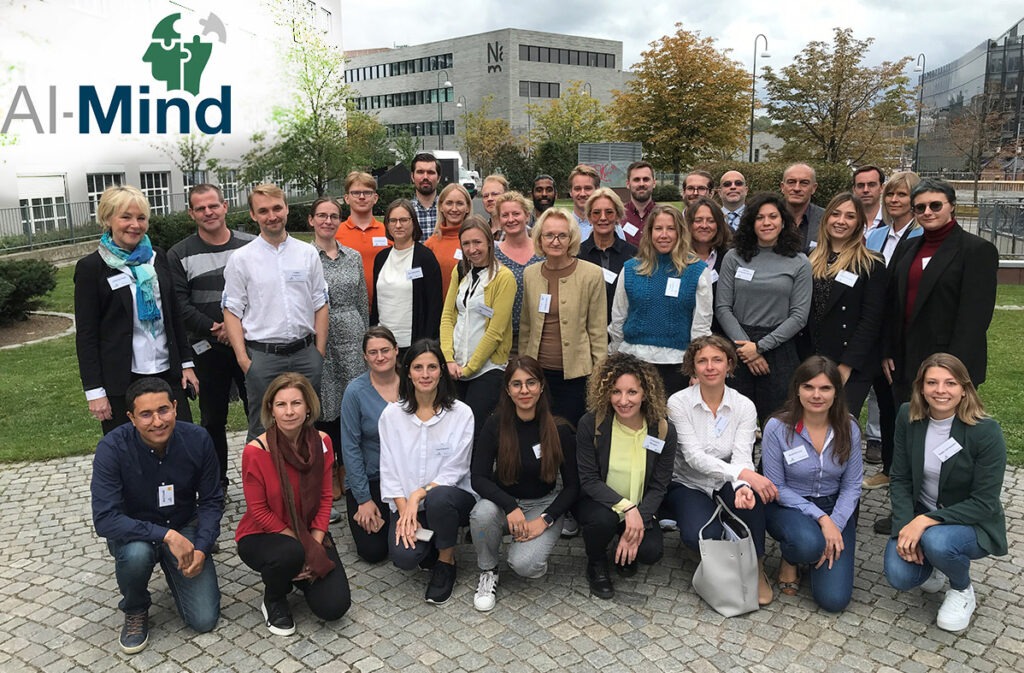September continuous for the 10th year as the World Alzheimer’s Month, the international campaign to raise awareness and to challenge the stigma that persists around dementia. It marks a special date of the 21st of September as World Alzheimer’s Day, typically linked to the launch of the World Alzheimer Report from Alzheimer’s Disease International. This year’s report will focus on dementia diagnosis, a challenge that the AI-Mind project is addressing. Not coincidentally the 3rd AI-Mind General Assembly (GA) took place recently, on the 17th of September.
The event held in a hybrid format allowed participants to meet in person for the first time since the project has started in March 2021. GA brought together more than 60 experts from our transdisciplinary consortium counting 15 partners, with 40 delegates participating in person. The meeting divided between morning and afternoon sessions focused on the project’s aim – how to tackle the challenge of dementia prediction with the use of innovative technologies.
The event was as well an exceptional occasion to get insights from the AI-Mind advisory board of which members were present at the assembly, including Francesca Sofia (Epilepsy Alliance Europe), Hernando Ombao (King Abdullah University of Science and Technology), Ole Petter Ottersen (Karolinska Institutet), James Rowe (Cambridge University, Dementias Platform UK), Klas Pettersen (Norwegian Artificial Intelligence Research Consortium), Richard Milne (Wellcome Sanger Institute), Andreas Keller (Saarland University).
All agreed that the AI-Mind project is an important initiative that can enhance a patient’s diagnostic journey and consequently the quality of life of those affected by mild cognitive impairment or ones who are onset to dementia. The importance of trustworthiness and ethical dimensions of artificial intelligence (AI) harnessed for dementia prediction was also highlighted during the morning presentations, especially by Ole Petter Ottersen, James Rowe, Klas Pettersen, Richard Mille and Andreas Keller.
In the AI-Mind project, we keep patients’ wellbeing at the core of our relentless efforts to develop tools for accurate dementia prediction and we are actively involved in raising awareness of dementia-related issues. The high motivation and commitment of all partners involved in the AI-Mind project were only confirmed during the AI-Mind 3rd GA with the encouraging promise from the project’s coordination, Dr Ira Haraldsen: This project will succeed.


